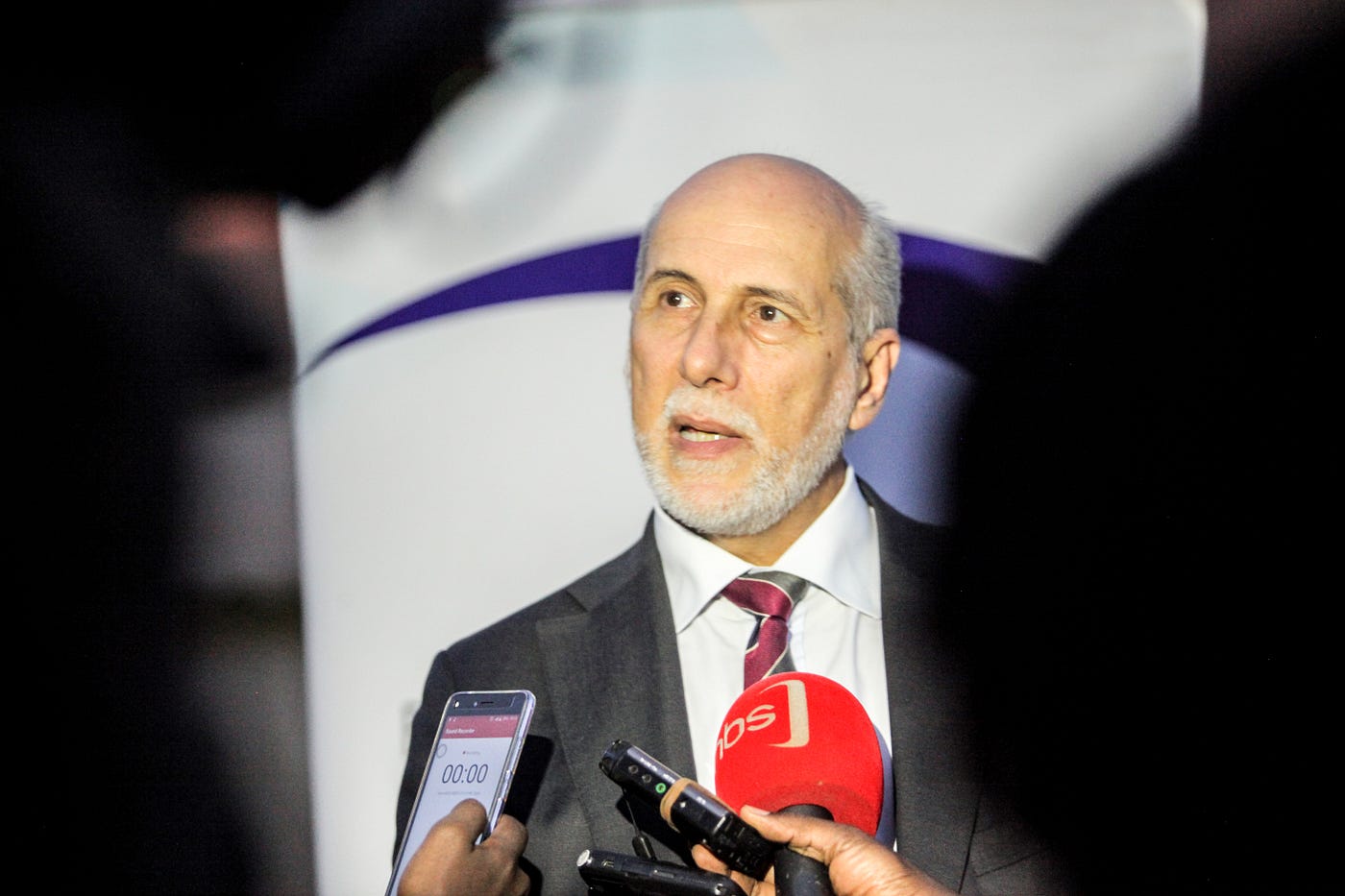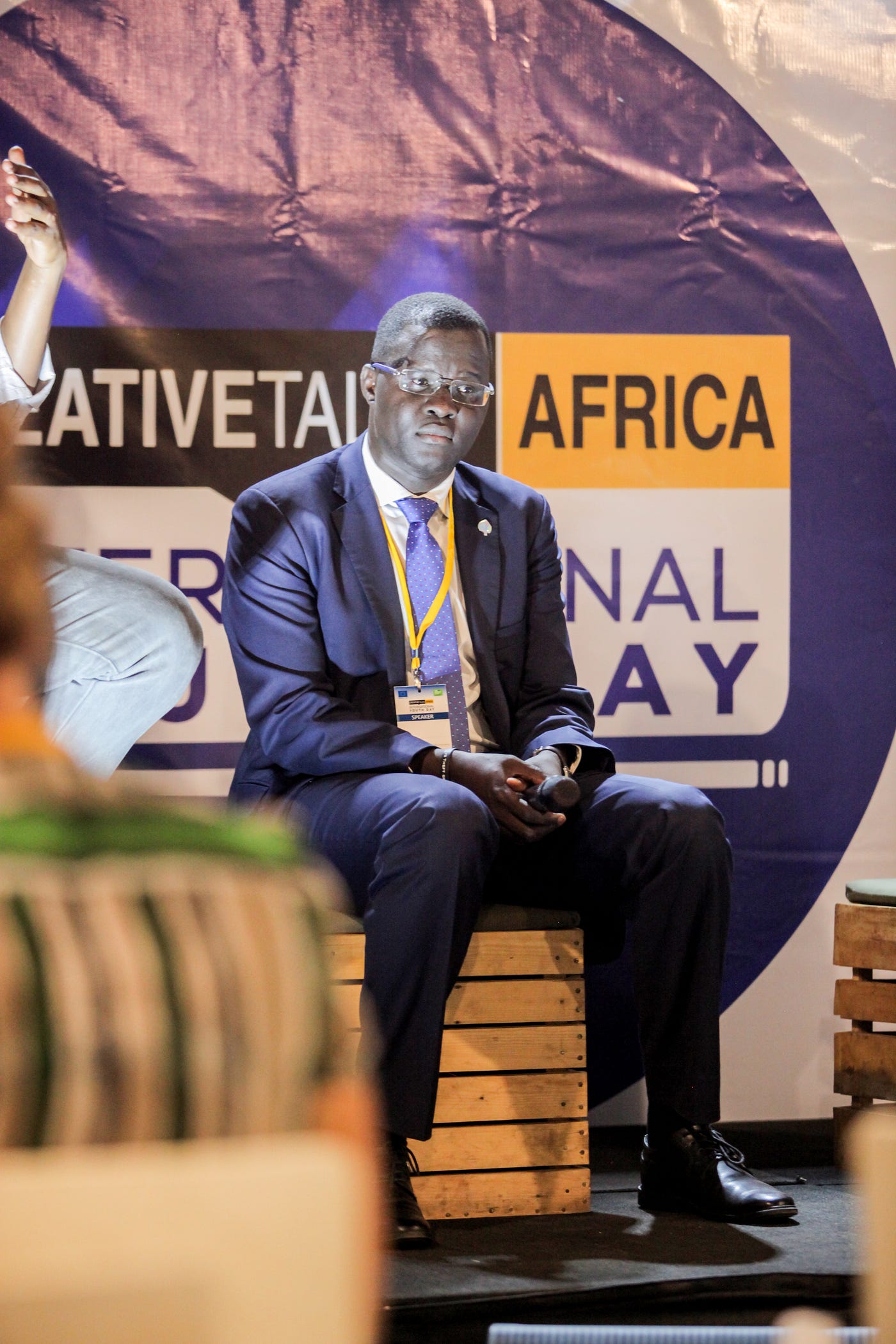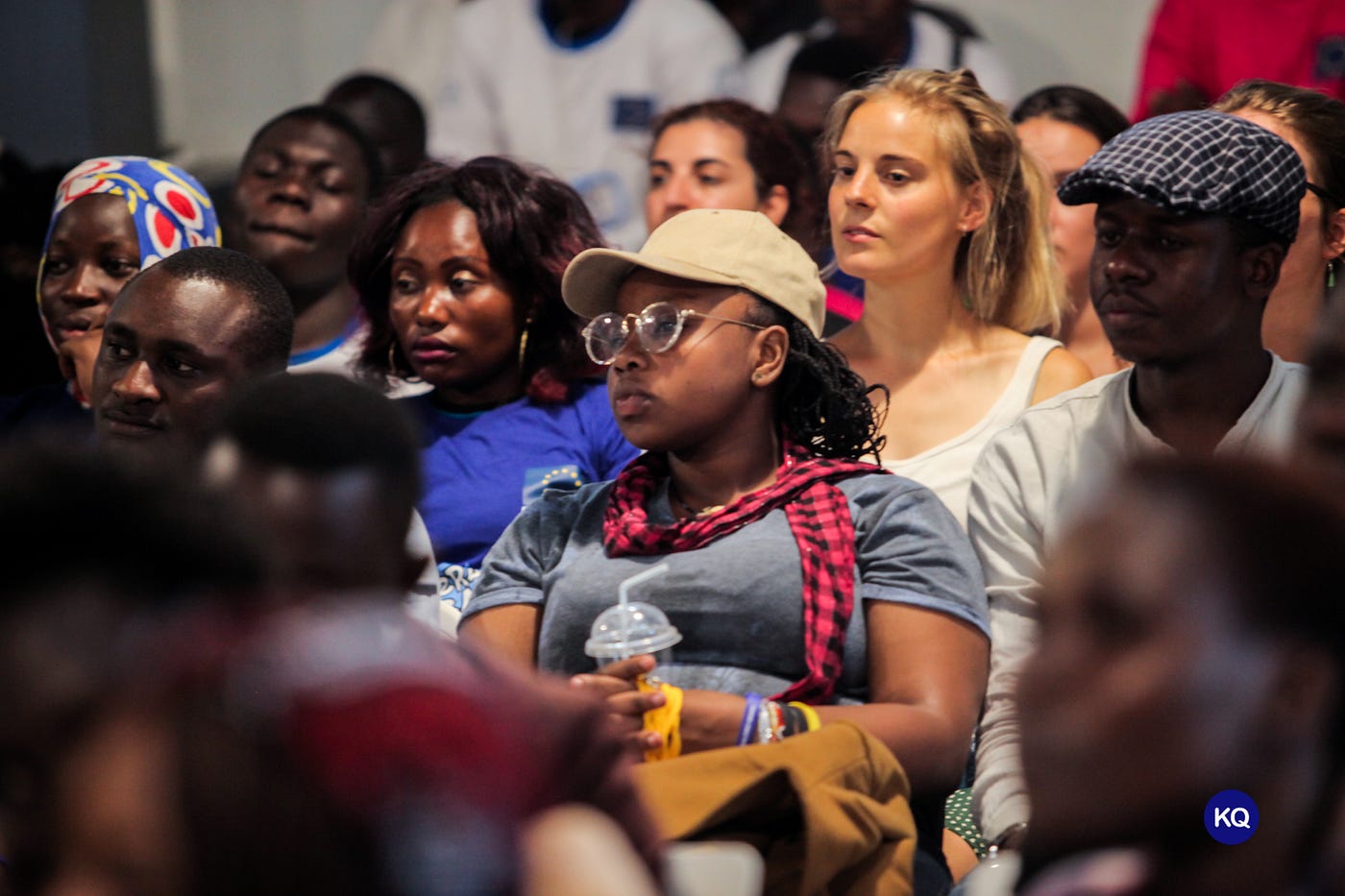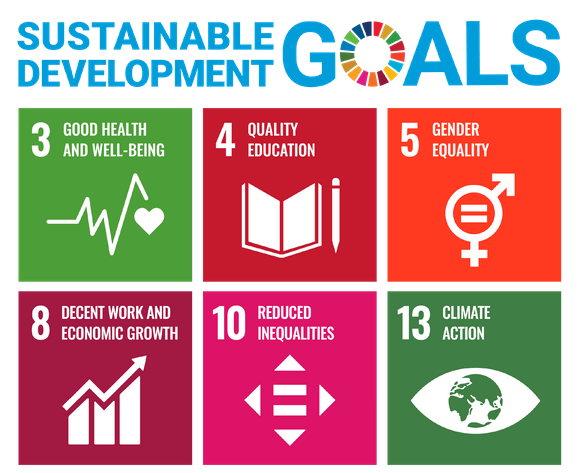
To celebrate International Youth Day, KQ Hub Africa in partnership with Design Hub Kampala hosted the seventh segment of its flagship Creative Talks Africa sessions with support from the European Union Delegation to The Republic of Uganda. This month’s session coincided with this year’s International Youth Day celebrations with the theme ‘Safe Spaces For Youth’. The theme is extremely relevant to all stakeholders especially because youth constitute the vast majority of our citizenry in Uganda, up to 78% to be more specific and this further highlights the commitment of the European Union to invest in youth worldwide regardless of their ethnicity, gender, age, or personal beliefs.
At the event, the EU Ambassador to the Republic of Uganda, H.E Attilio Pacifici in his opening remarks interpreted ‘Safe Spaces’ as freedom of speech, democracy, having a political voice, expressing one’s identity, promoting tolerance and peace, accommodating business creation and providing incubators for small and medium enterprises. He also emphasized the need for youth to access safe spaces which are both physical and symbolical in which they can express their needs, take part in shaping development initiatives and benefit from them.
He however, bemoaned the alarming youth unemployment rates in Uganda and further added that while efforts and political readiness to act are reflected in the efforts by government, civil society and development partners, these efforts still fail to bring the intended benefits to the youths. But he reaffirmed the the European Union’s commitment to engage with youths throughout the country in an effort to promote peace, social cohesion, vocational training, and access to financial assistance to start up or develop businesses as remedies to the high youth unemployment rates.
“My key message,” he opined “is that the main stakeholders should create a nationwide environment in which youths can thrive because Ugandan youth are a force of 32 million people, spread across the country, with unparalleled potential to constructively drive and achieve social and economic changes”. In his final message, he emphasized the need for both Europe and Africa to invest much more in youths.

On the first panel, which comprised of players from tech hubs, co-working and art spaces was moderated by Angela Mirembe Semwogerere, founder of Coding In Heels and she was flanked by panelists, Mildred Apenyo, the brains behind FitClique Africa and the Feminist Utopia installation, Carina Juilfs, co-founder of Matunda Hub, an agribusiness incubation space and Wabwire Ian Joseph, the Creative Director at KQ Hub Africa a creative Arts and Culture collective based in Uganda.

The second panel was moderated by David Ogutu, a digital journalist and founder of Kafunda Kreatives and included Brian Mutebi the founder of Education and Development Opportunities Uganda a charity organisation with a mission to transform lives by giving girls access to education, empowering them to succeed and uphold fundamental human rights, Susan Muhereza who is the head of Monitoring and Evaluation at International Republican Institute (Uganda), an organization committed to assisting citizens to participate in government planning, and working to increase the role of marginalized groups in the political process, Neema Iyer the founder of Pollicy, a civic tech platform and the brains behind Wetaase an anti-trafficking campaign and We Speak, a local government feedback platform, and finally Nicholas Opiyo who is the Executive Director of Chapter Four Uganda renowned for his relentless campaign for and defense of civic rights and liberties as well as providing free legal representation for the marginalized sections of the community.

The panelists discussed a vast array of topics ranging from youth unemployment, women’s rights, inclusivity, equality, decentralization of co-working spaces, creative Arts and Culture spaces among other contentious subjects, and how they are leveraging their expertise in their respective fields to create “safe spaces for youth”.

“What we’re doing at KQ Hub Africa is that we’re trying to create a safe space for Creatives within the arts and culture sector. Culture is an embodiment of who we are as humans. So we need to create inclusive spaces for everyone regardless of education, gender, nationality or physicality. Everyone regardless of their age should be included in the arts and culture space.” Wabwire when asked about the age at which young people should be introduced to the culture and art spaces.
Asked about how she handles the aspect of inclusivity in the safe space created by her initiative, Mildred Apenyo had this to say,
“When we talk about safety, I think feminism — which is the ideology on which Fit Clique Africa’s work is based — is the solution to our safety and inclusivity issues. Simply because black feminism as ideology advocates for the rights, full empathy and inclusivity absolutely everybody.”
One of the most contentious topics of the evening was gender equality and when asked about what Matunda Hub is doing to support equality, Carina Juilfs remarked,
“It’s all about finding the right people for the position than the right gender. We’re open to everybody. We try to arrange the time frame and the scope so that everyone can have the opportunity. But we’re not pushing women to do things that may be unfavorable to them.”
On whether the co-working hub model can be replicated elsewhere in the country especially rural areas,
“The unfortunate thing is that co-working spaces are run exclusively as a business. There should be free and payment options. So we should create those spaces for young people who only have an idea and no monetary backing and the second option is for those with established businesses who have the income to foot the monthly payment. I think this aspect is usually forgotten. Proprietors see co-working spaces as a business only and oftentimes, the creativity of those who can’t afford them is lost along the way.” Carina remarked.

The panelists had quite a host of suggestions when asked how the government can intervene to support their respective spaces. These included; taking women’s safety more seriously, channeling the taxes it collects towards initiatives like setting up public hubs allover the country that will directly profit young people, scrapping the tax on access to the internet, to stop demanding for money for nomination from young people that seek to contest for elective positions since it hinders youth representation and to make it easier for young entrepreneurs to startup and run businesses.
It should be noted that Uganda is one of the most entrepreneurial countries but most businesses have a very short lifespan and some of the things that have contributed to the stifling of businesses are the prohibitive taxes, corruption and bureaucracy.
On what we should do as individuals, so that the digital revolution doesn’t swallow us alive, Wabwire pointed to the laxity to embrace technology as one of the reasons for the high youth unemployment rates.
“All of us have to embrace technology whether we like or not. We should empower those who don’t have the privilege of access to technology so as to promote inclusivity,” he said.
Asked about whether the government doesn’t allow us to have safe spaces or if we’re merely not educated to what our civic duty is, Susan Muhereza opined that it’s it’s a mixture of both.

“People with power will always wield it in their interest. And if people in this room exempt themselves from that conversation, or the equation in terms of engaging with government, joining political parties or registering for voting, then what we are really saying is that I don’t care to be involved in politics or with the decisions politicians make so those politicians will do whatever they want.” she noted.

Brian Mutebi stated that people should be educated about the availability of the safe spaces and that everyone can try in their own capacity to inspire people to create safe spaces in their respective areas as means of getting people to understand their civic responsibility and to utilize the space that’s available before advocating for a larger space. He emphasized self-assertion to create space where it’s limited or closed.
On how to expand the safe spaces beyond the elite Ugandans to uneducated people, “We must create access as opposed to restricting access.” Nicholas Opiyo said.
“We can only do that if we make regulations that allow for people to have greater access. Imposing a tax on social media, might raise revenue for the government but rather restrict the space for so many other people who can’t to buy data perhaps deep in the village and thereby limiting the space.” he added.
He also stressed the need to encourage people to stop looking at digital space as a privilege but rather as a right and entitlement. He stated that If you begin to appreciate something as a right, then you can start to claim it no matter where you are.
The panelists also called out the government for failing to fulfill it’s legislative and constitutional duties.

“If you’re a victim of cyber-bullying, for instance revenge porn, and report to the police, there’s no legislation that punishes the perpetrators. We have some laws like the Computer Misuse Act but that doesn’t cover any of those and right now they’ve tabled the Data Protection Act but they haven’t passed it into law yet. So we need to make sure that these rules are effected and the perpetrators punished,” Neema stated emphatically.
Nicholas Opiyo in the same vein pointed out the failure of government to execute article 17 of the constitution which imposes an obligation upon the state to translate the constitution into local languages.
“Twenty years later after this constitution was enacted, there’s no single translation of the constitution. The impact of which is that hundreds of people who can’t read or write are unable to know what their rights and obligations as citizens are.” he lamented.

About creating safe spaces online, Nicholas Opiyo stressed the need to understand that the responsibility to make these spaces safe is ours as tech companies don’t care about it since they are not democratic entities. To supplement this, Brian Mutebi asked rather rhetorically, “when someone posts something that belittles another, what’s your reaction? Do you simply laugh, forward or try to check the spread of such material that pollutes your space?” he went on asserted that It’s everyone’s personal responsibility to see that safe space isn’t polluted before you reach out to other people.
In summary, the pointers raised on the International Youth Day serve to show how young people in positions of leadership are championing the role of creating safe spaces for all and asserting the need of these spaces.


